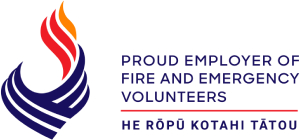Working in Fear
A study of Healthcare Assistants during the March Covid-19 Lockdown in New Zealand
Alexandra Clark, Academic Manager Kalandra Education Group
Dr Christine Clark, Chief Executive Kalandra Education Group
25 March 2020 marked the day that New Zealand went into a level 4 nationwide lockdown, effectively stopping the nation and essentially the spread of Covid-19.The extremely virulent virus was particularly deadly for our more vulnerable people, especially older people with pre-existing disease. Recognising the serious risk to residents, many aged care providers went into lockdown a week prior to the order from the Government, placing huge stress and workload on their staff.
This study is of those staff who whilst working were also students of Kalandra Education Group, a specialist in online training focussing on aged care. Originally designed to understand the effects of working and learning in this situation the study determined one very significant fact, that 78% of those responding reported that they experienced fear.
Method. A Survey Monkey using a Likert scale of 1-5 was distributed to all current students (online) during the Covid-19 crisis, with approximately 20% N 38 responding. This survey was divided into 6 areas of exploration; the work situation, levels of stress and anxiety, satisfaction with Government and workplace policies, post-covid expectations or ongoing issues, ongoing support required and the significance of learning during Covid.
Findings
Work Situation:
Of those responding, 97% were employed as a health care assistant at the time, with over 50% working in aged care facilities and 34% providing home care. Working hours were significantly increased for 42%, however over a third had hours reduced, predominantly those working in home care.
Levels of Stress:
A crucial finding of this study was the expression of fear with over three quarters of respondents (78%) using this word. Fear was expressed in relation to their families with over 40% experiencing concern for their families both in New Zealand but also overseas. As over a third of those working in this industry are migrants the concern for distant family was very real. Fear for clients was expressed by 25% and 8% were concerned about colleagues. Financial concerns were raised by 10% and fear of the unknown by 5%. Most responses included more than one concern.
The students reported coping mechanisms included taking time by themselves or with family (25%), accessing friends or therapy (26%), not following the news and reports (11%) and substance abuse (5%)
It was interesting then to explore how relevant and supportive the students felt the organisations and Government were.
Satisfaction with Government and Workplace Policies:
A third reported satisfaction with policies and felt that their workplace had done everything they realistically could, however 50% said they would have appreciated more support and half of these indicated that they needed more support from their workplace. This result indicates that 25% needed more support from their employer which is something we need to consider for future occurrences and requires more exploration.
Post-Covid Expectations/On-going Issues:
A significant finding was that 63% believed they would have on-going issues with 34% reporting concern with finances and nearly 20% expressing increased stress levels as a concern. Concern with working in this environment of vulnerable people was not a feature (2%) and worry over their own health rated the same minor finding.
On-going Support:
Better preparation for the next event was a key issue with 33% wanting more training and knowledge, especially about infection control. 11% wanted access to counselling and mention was made of needing better and increased communication from the employer.
Significance of Learning:
Kalandra is a training organisation and thus the experience of being a student and an essential worker during Covid was explored, with the focus on whether learning was an important feature during this time. 39% responded that it was more important, 32% felt that there was no change and 21% believed it was less important. Asked why learning was felt to be more or less important the responses ranged from being scared and getting support during their learning, that they were now more aware of mental health and that studies gave them something other than the pandemic to focus on. Those who reported it was less important explained being too busy and unable to focus.
Half of the responders felt that short courses especially in relation to vital practices and the immediate situation would be of benefit should a similar emergency occur in the future and a similar number suggested that increased and more frequently updated information would be of help. Some respondents (10%) praised their workplaces as providing them with good training during this time.
In Conclusion:
The majority of these students reported working and living in fear, with most concern expressed for their families, both in New Zealand and especially offshore. Recognising this and addressing the concern would go a long way to alleviating some of the stress that was expressed.
These workers were not highly concerned with their own health, and many were satisfied with the efforts made by their organisations. There was anxiety expressed that this type of situation may occur again, and of course it has, and a common message was the request for better preparation.
No mention was made of requiring improved remuneration, the respondents simply asked for more understanding, specific training and improved communication so that they can be better prepared for next time. At the time of writing this, four months after the event a further lockdown has occurred and the feedback is that stress levels and fear have increased.
The Health Care Assistant is the majority worker in aged and home care. It is the employers responsibility to ensure that they are safe and cared for. They are not asking for a lot however this concise survey has raised some areas for further exploration, how can we help the employee and student cope with fear, how can we help to negate this fear and how can we listen more effectively and respond?
Back to News




